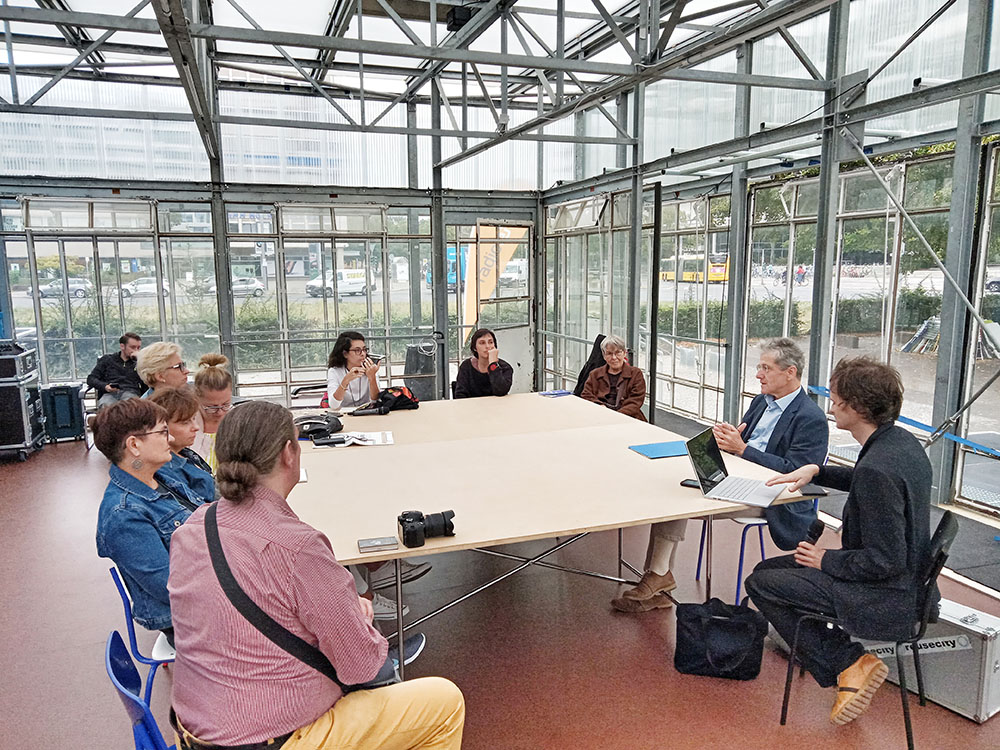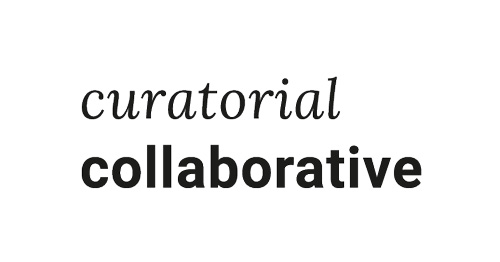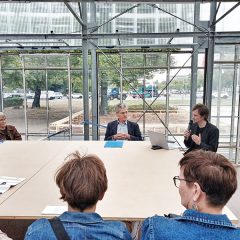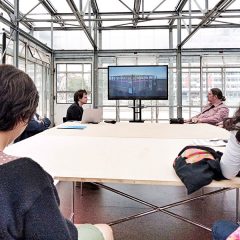Education-Theory-Practice: Transdisciplinarity between Science, Professional Practice and Society

© zukunftsgeraeusche
The bauhaus reuse on Ernst-Reuter-Platz is a new centre for transdisciplinary education, research and participation. In cooperation with the district of Charlottenburg Wilmersdorf, TU Berlin and UdK Berlin, it represents a pilot platform for the “Campus Charlottenburg”. The task for the coming years is to realise exemplary transdisciplinary projects and at the same time to develop structures that enable transdisciplinary learning and work to become permanent. The core idea of transdisciplinarity is based on the mutual appreciation of different competences and perspectives. The two pillars are: a lively exchange between research, academic education and professional training on the one hand, and between science and the professional level and the general public, here the urban society, on the other.
To this end, the workshop talk provides a definition vis-à-vis current concepts of transdisciplinary dialogue, with regard to the future of education and work, also in international comparison, and impulses for a roadmap of the centre. This is done against the reference to the Bauhaus, reform pedagogy, production school principle and project method. From today’s perspective, the approach at the historical Bauhaus was transdisciplinary. The demand “we all have to return to the craft” was followed by a renewed connection of practice and theory, of study and training. Whereby one approach to transdisciplinarity was not realised at the Bauhaus due to political circumstances: equal participation and productive dialogue with society, which today is increasingly the focus alongside overarching professional cooperation.
The workshop talk invites guests from science, practice and civil society. Building on short keynote speeches, a table-talk discussion will follow, inviting public participation.






